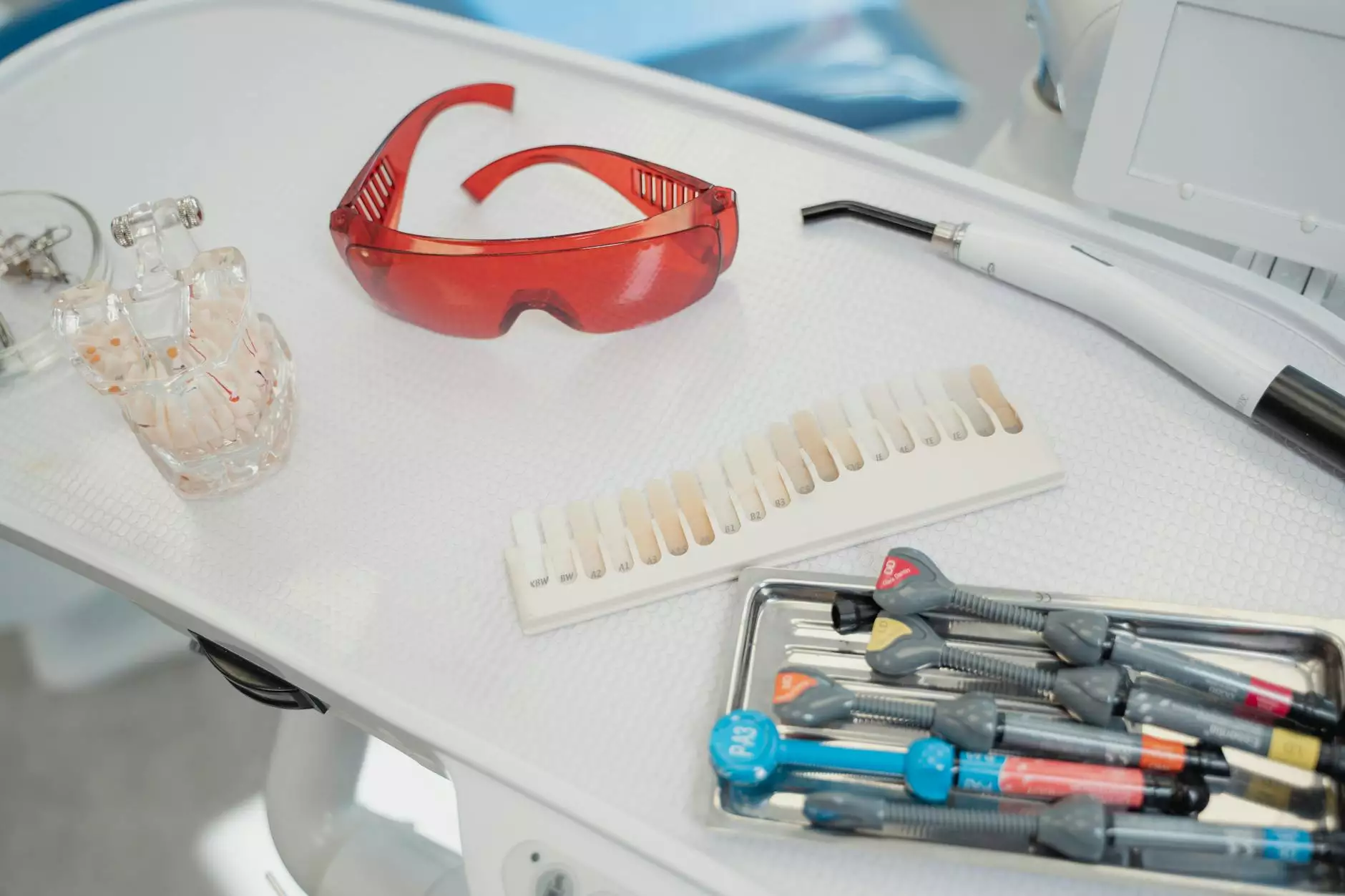Transforming Healthcare: The Role of Medical Centers in Modern Business

In today's fast-paced world, the intersection of health, medical, and business is more vital than ever. With the rise of technological advancements and globalization, https://www.medesunglobal.com/ has become a beacon of hope and efficiency in healthcare. This article delves into the crucial roles that medical doctors, health services, and medical centers play in enhancing business frameworks and contributing to the global economy.
The Importance of Medical Professionals in Business
Doctors are not just providers of medical care; they are integral to the business ecosystem. The healthcare industry is one of the largest sectors globally, employing millions of professionals who drive economic growth. Here's how doctors influence business in various ways:
- Healthcare Providers as Entrepreneurs: Many doctors are stepping into the realm of entrepreneurship, opening private practices, clinics, and medical centers that offer specialized services. This innovation helps to diversify healthcare options for patients.
- Consultative Roles: Doctors frequently act as consultants in various industries, providing expert opinions that can influence product safety, pharmaceutical development, and even insurance policies, thereby shaping market trends.
- Health Advocacies: Physicians often lead health advocacy initiatives that promote public health policies, education, and preventive measures, positively impacting the general well-being of communities and improving workforce productivity.
The Evolution of Medical Centers
Medical centers have evolved significantly over the past few decades. Once considered mere institutions for treatment and recovery, they are now bustling hubs of innovation and business acumen. Here are some key transformations:
1. Integration of Technology
The integration of technology in medical centers has revolutionized the way healthcare is delivered. Telehealth services allow doctors to reach patients who are unable to visit physical locations, thus broadening their practice's reach. Moreover, electronic health records streamline administrative processes, enhance patient care, and reduce operational costs.
2. Focus on Patient-Centric Care
Modern medical centers prioritize patient experiences. With the rise of patient advocacy, healthcare providers are increasingly emphasizing personalized care plans and holistic treatments. This focus not only enhances patient satisfaction but also fosters loyalty, encouraging patients to return to the institution for ongoing care.
3. Community Engagement
Many medical centers engage with their surrounding communities through free health fairs, wellness programs, and educational workshops. This involvement positions these institutions as supportive pillars of their neighborhoods, thereby enhancing their public image and patient trust.
Health and Business: A Symbiotic Relationship
The relationship between health and business can be described as symbiotic. Healthy individuals contribute to a more productive workforce, which in turn stimulates economic growth. Conversely, a thriving economy can afford to invest in robust healthcare systems. Examining this relationship reveals several crucial insights:
1. Impact on Workforce Productivity
Healthier employees are more productive, miss fewer days of work, and contribute positively to their companies. By fostering a culture of health within organizations, businesses can enhance employee morale, reduce turnover rates, and optimize performance.
2. reduced healthcare costs
Investing in preventive healthcare measures can lead to a significant reduction in healthcare costs for businesses. By promoting employee wellness programs that focus on fitness, nutrition, and mental well-being, employers can curb chronic health issues, ultimately reducing insurance premiums and medical reimbursements.
3. Innovation and Research Investment
The tandem efforts of medical centers and the business community lead to breakthroughs in medical research and innovation. Collaborative efforts often yield new products, treatments, and technologies that can benefit both healthcare and broader economic markets.
Globalization of Healthcare
The concept of global health underscores the interconnectedness of healthcare systems across borders. Initiatives aimed at improving health outcomes worldwide also benefit the business sector, as healthier populations lead to more stable markets. Some key points include:
1. Spreading Best Practices
With the dissemination of information and technology across countries, best practices in healthcare delivery can be adopted globally. This sharing fosters innovation and efficiency in medical treatments, benefiting both providers and patients alike.
2. Medical Tourism
Medical tourism has surged as patients seek affordable and high-quality care abroad. This trend supports local economies and healthcare systems in destination countries while also allowing patients access to treatments they might not afford in their home countries.
3. Collaborative Health Initiatives
Joint global health initiatives, such as those led by organizations like the World Health Organization (WHO), drive forward-thinking healthcare policies that benefit populations worldwide, subsequently resulting in a more robust global economy.
Challenges Faced by Medical Centers
Despite the numerous benefits and advancements made in the healthcare sector, medical centers confront various challenges that can affect their operations and contributions to both healthcare and business:
1. Regulatory Compliance
The healthcare sector is heavily regulated, and compliance with laws and guidelines can be cumbersome for medical centers. Staying abreast of changing legislation and maintaining compliance often requires substantial resources that could otherwise be directed towards patient care.
2. Financial Pressures
Financing medical services and managing operational costs can prove overwhelming. Many medical centers struggle with cash flow issues, particularly those serving low-income communities where reimbursement rates are low.
3. Technological Adaptation
While technology offers vast potential, adapting to new systems and methodologies requires time, training, and financial investment. Medical centers must strike a balance between embracing innovation and ensuring seamless transitions in patient care.
Future Outlook: The Evolution of Business in Healthcare
The future of healthcare and business will undoubtedly intertwine as new challenges emerge and technologies advance. Some expected trends include:
1. Value-Based Care Models
As healthcare evolves, there will be a significant shift toward value-based care, which rewards healthcare providers for patient outcomes rather than the volume of services rendered. This model encourages efficiency, better patient care, and participating in patient engagement initiatives.
2. Emphasis on Mental Health
The growing awareness of mental health issues continues to reshape business practices within healthcare. Organizations will increasingly prioritize mental health support for employees, recognizing its significance in overall well-being and productivity.
3. Enhanced Patient Engagement and Empowerment
With the rise of health technology apps and online patient portals, patients are becoming more engaged and empowered in their healthcare journeys. This trend results in better health outcomes and a more informed consumer base, ultimately affecting how healthcare businesses operate.
Conclusion
In conclusion, the relationship between healthcare and business is profound and multifaceted. Medical centers and healthcare providers stand at the forefront of this dynamic, paving the way for innovative practices that not only improve patient care but also drive economic growth. As we advance, the contributions of doctors, health services, and medical centers will continue to reshape the landscape of business, ensuring that health remains a priority in the global economy.
Ultimately, investing in health translates to investing in a more prosperous future for all sectors. As seen through initiatives supported by organizations such as https://www.medesunglobal.com/, we can work towards a healthier world where businesses thrive alongside well-being.



